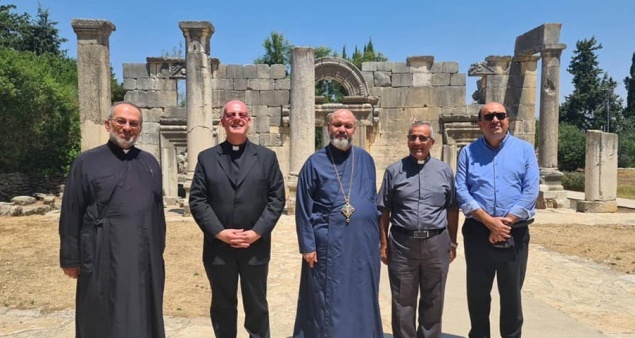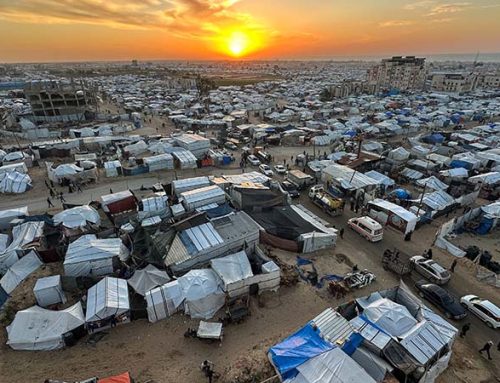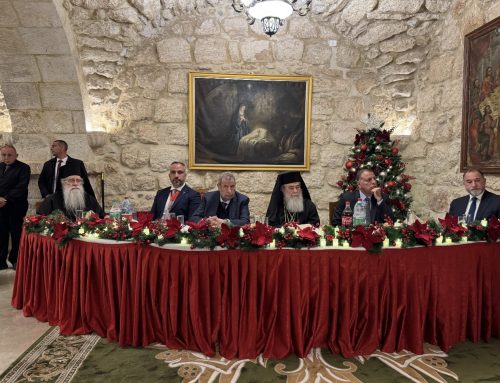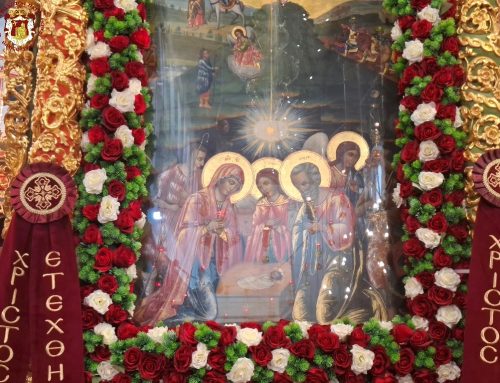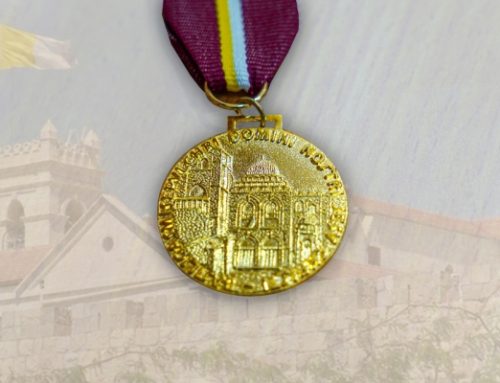IQRIT, BIR’IM/ Galilee – On Saturday, August 7, 2021, Msgr. Tomasz Grysa, First Counselor to the Apostolic Nunciature in Israel, met with the residents and descendants of two depopulated Palestinian Christian villages in Upper Galilee; Iqrit and Kufr Bir’im. The meetings took place in presence of Archbishop Yousef Matta, of the Greek Melkite Catholic Archeparchy of Acre, and Mr. Sami Abu Shou Shahadeh, member of the Israeli parliament for the Joint List.
In the two villages, Mgsr. Tomasz started his visit with a prayer inside their long-standing churches, and then listened to the stories of Christian families and their ongoing battle to rightfully return to the lands of their ancestors and build a future for them and their children.
According to the Greek Melkite Catholic Archeparchy of Akko, the visit falls within the pastoral priorities of the Archeparchy to advance the cases of Iqrit and Kufr Bir’im, whose residents and descendants have appealed, on several occasions, to the Holy See through the Archeparchy and the Apostolic Nunciature in the Holy Land.
“We will continue to follow up on this important matter,’ wrote Sami Abou Shahadeh on his Facebook page. “We will do our best locally and internationally to restore the rights and justice for the families of the villages whose struggle has kept their cases on the local and international agenda”.
Right of return only upon death
Iqrit and Kufr Bir’im were both depopulated in November 1948, when Israeli forces deemed it necessary, for ‘security reasons’, that the inhabitants of both villages evacuate their lands. Despite being promised to be permitted to return in two weeks’ time, the people of Iqrit and Kufr Bir’im have never been allowed to settle back in their lands ever since.
For the next few years, the residents of Iqrit and Kufr Bir’im were displaced and transferred to nearby villages and cities like Jish, Rameh and Haifa or refugee camps in Lebanon. Not wanting to give up their lands and houses, the people of both villages brought the case before the Israeli Supreme Court. In the case of Iqrit, the court ruled in July 1951 that their expulsion was illegal and ordered that they must be allowed to return to their homes. In the month of July of the following year, the same decision was reached in favor of the residents of Kufr Bir’im.
However, and despite the decision of the court, Israeli forces destroyed Iqrit and Kufr Bir’im in December 1951 and September 1953 respectively, leaving their churches intact but lightly hit. Since then, the inhabitants of these villages have tried to return to their lands but to no avail. In 2003, the people of Iqrit appealed to the Supreme Court, but their petition was dismissed. From 2012, residents and descendants of the villages, have been going back to their lands and setting up camp there, only to be destroyed later on by Israeli authorities.
From 1948 until 1967, residents of Kufr Bir’im were denied the possibility of burying their dead in the village’s cemetery. An exception was only made in 1956 to lay to rest Fr. Elias Susan, one of the priests of the village.
“I don’t understand what the problem is in my living and being buried here,” said Haitham Sbeit, a descendant of Iqrit village. “Why should I return here only when I’m dead? No, that’s not what I want.”
Source: Latin Patriarchate of Jerusalem

